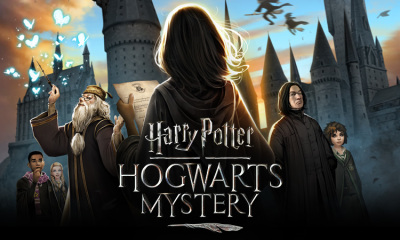Christian liberties: A road to paganism?
The area of doctrine concerning Christian liberty is known as adiaphora, meaning "things indifferent". These are related to personal choices that should not affect an individual's salvation one way or the other if a person chooses to exercise those choices.

Quite often the scriptures, "All things are lawful for me, ..." (I Cor. 6:12; 10:23) and, "Whether, then, you eat or drink or whatever you do, do all to the glory of God" (1 Cor. 10:31), are used to justify a personal choice. The "all things are lawful" statement is often used as a mantra and applied to things condemned by scripture. When this happens, Christian liberty becomes libertinism that ignores biblical limitations. And, let's face it, only the naive would believe that professing Christians limit their liberty to the physical appetite alone. This should be a concern for all Christians and a warning that paganism could not only be knocking at the door but could be camping out in the living room.

It has been said that the road to hell is often paved with good intentions. It can also be said that the road to paganism is often paved with pragmatism, which interprets not just eating and drinking, but all things as being neutrally indifferent and their use to be determined by individual choice. The truth is we have become a society of experience-oriented truth seekers, but only defining and confirming as true that which will correspond to our individual experience.
Such a mindset is manifest in ways too numerous to count. Due to applying Christian liberty beyond its Biblically intended boundaries, questionable areas have become like a smorgasbord for the choosing. Sadly, to many it does not seem to matter if such things are "ripe for the picking" represent a worldview that is diametrically opposed to the Christian worldview. Such is the case with J. K. Rowling’s Harry Potter.
Neo-Paganism/Harry Potter/WICCA
Christians have certainly taken license with the Potter phenomenon. Through the vehicle of creative imagination and encouraging reading among the young, the Neo-Pagan and Wiccan worldviews have been on display in Potter films and books for a long time. By the way, did you know that in addition to Harry Potter merchandise, you can get Wicca & Witchcraft for Dummies at Walmart.com? This alone should alert us not only to how prevalent occultism has become in our culture, but also to how enamored our culture has become with witchcraft.
As to whether or not Harry Potter stories promote witchcraft, there should be little doubt about it. The very name Hogwarts School of Witchcraft and Wizardry ought to be a dead giveaway. What flows from J.K. Rowling's books and movies, the number of which is unsurpassed in the area of children's literature, is an occult worldview that has been glamorized and marketed specifically for children.
The proponents have said, "Oh, no! You've got it all wrong, Harry Potter is not real witchcraft, it's fictional fantasy and Christian allegory!" If that is the case, why use messages and symbols aligned with paganism and witchcraft rather than with Christianity? Using that which best aligns with paganism and witchcraft yet calling it Christian is nothing more than the baptism of paganism.
A warning sign to parents should be the vast number of pagan and witchcraft websites over the years that have promoted Harry Potter as representing occult practices and beliefs accurately. Consider a few of these endorsements:
"[The Harry Potter series], both as books and in movie form are a wonderful metaphor of how we, as witches/Wiccans/Pagans/Magical people, perceive our own spirituality/works/studies, and our vision of the world. The symbolism is so strong, and I have found myself reacting so many times...positively, mostly thinking, "this is SO right!" Even, as I think Quirrell himself has said it so plainly..., 'There is no good and evil, there is only power, and those too weak to seek it...' This might actually offend some, but it hides one of the great truths of Witchcraft, that there is no White or Black Magick, there is only Magick, and it is the use we make of it that defines its purpose, although we usually see a dark use of Magick as weakness, rather than strength."
"Sure you are seeing witches in Harry Potter...But it is positive. They are friendly. They are good. The book may change the way people feel about us."
"Harry Potter happens to be one of the best things for witchcraft, and the understanding of it."
Claiming to be Christian, as Rowling does, and claiming that Harry Potter has a Christian allegorical meaning, while at the same time promoting a worldview contrary to Christianity, defeats the purpose of any purported Christian message. Claiming to be Christian yet promoting a worldview hostile to Christianity is contradictory.
Some have likened Harry Potter to C.S. Lewis' stories which are true fantasy. In Lewis' stories, the setting is an alternate reality quite different from our own. Have you met any talking beavers or talking lions lately? Of course not, that is fantasy. However, in Harry Potter, the stories take place in our present reality in which actual occult practices are being performed by Harry. He was born a wizard from his witch mother and wizard father who also attended Hogwarts, a school remarkably similar to the modern day boarding schools found in England. It is there that Harry, like his parents before him, is in training to learn sorcery, complete with the casting of spells, learning to use potions, rituals and divination, similar to those who participate in these practices today.
There are many instances of reality-based sorcery illustrations including a real historical character, Nicholas Flamel, in the book and movie, Harry Potter and the Sorcerer's Stone. The students have conversations with the dead Flamel as he walks the halls of Hogwarts, endorsing necromancy, communication with the dead. Flamel was a French alchemist who supposedly succeeded in making the Philosopher's Stone in the late 1300's. Students of alchemy know that the Philosopher's Stone is a metaphor for turning our base, physical natures into our more metaphysical self, attaining self-actualization with the Higher Self. This inner transformation supposedly produces everlasting life.
Catholic writer Michael O'Brien critiques Potter, comparing Rowling’s Potter world to being gnostic in essence and practice saying, "The wizard world is about the pursuit of power and esoteric knowledge, and in this sense it is a modern representation of Gnosticism,… the so-called 'Christian Gnostics' of the 2nd century were in no way Christian, for they attempted to neutralize the incarnation and to distort the concept of salvation along traditional Gnostic lines: man saves himself by obtaining secret knowledge and power."
This seems to be the modus operandi in Potter. O'Brien further states, "This is consistent with the author's confused notions of authority. In reality, magic is an attempt to bypass the limitations of human nature and the authority of God, in order to obtain power over material creation and the will of others through manipulation of the supernatural. Magic is about taking control. It is the fundamental rejection of the divine order in creation. In the first book of Samuel (1 Sam. 15:23) divination is equated with the spirit of rebellion”. The occult/pagan/witchcraft worldview is an upside down world. One should get a sense of this from the beginning of Harry Potter. The natural has traded places with the superstitious, the normal for the abnormal. Witchcraft is portrayed as normal while the "real" or normal (the "muggle" world) is portrayed as abnormal.
Intention never changes meaning. In trying to Christianize Harry Potter, Christians are faced with two problems. They really do not understand witchcraft and they really do not understand the Biblical teaching against such pagan practices. It needs to be said that we are not given Biblical liberty to mimic forbidden practices. To be honest, this is where the church has failed. It is not enough to say "stay away from witchcraft" if believers do not understand what they are supposed to stay away from. It appears that believers have not been properly warned enough to "abstain from all forms of evil" or that light does not fellowship with darkness.
Conclusion
Scriptures both warn and encourage us to see things from a Biblical perspective. God, through the prophet Isaiah says, "For my thoughts are not your thoughts, neither are your ways my ways, declares the LORD. For as the heavens are higher than the earth, so are my ways higher than your ways and my thoughts than your thoughts" (Isa. 55:8-9).
It is easy to get off base when popular human opinion or experience has become the reference point for interpreting life instead of the scriptures being the only rule of faith and practice. Unfortunately, some are using the Bible as merely one rule and not the only rule of faith and practice. It was for freedom that Christ has set us free. But we are set free to do His will, not ours! Since we have been set free, we are to bring every thought captive to the obedience of Christ (II Cor. 10:5).
Clete Hux is the Director of the Apologetics Resource Center located in Birmingham, Al. He is a Teaching Elder in the PCA ( Presbyterian Church in America ) and on the Teaching Faculty of the Birmingham Theological Seminary where he teaches Comparative Religions, Christianity and Competing Worldviews, and other related Apologetic courses.




























